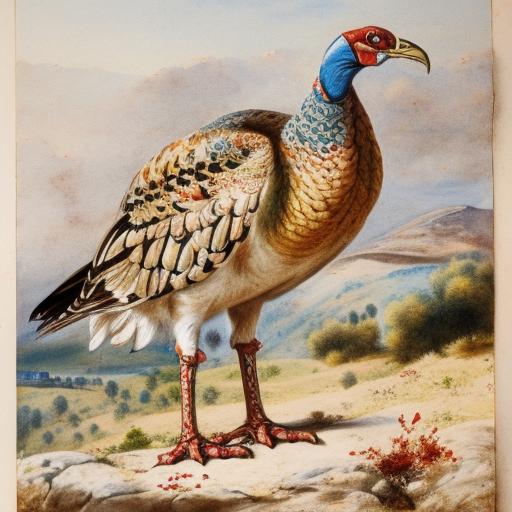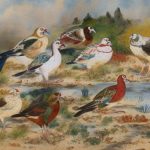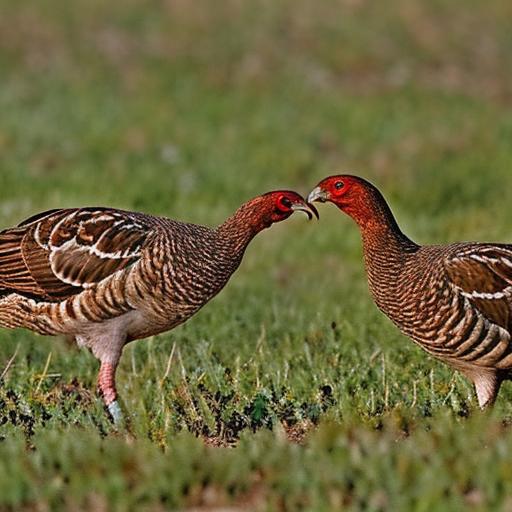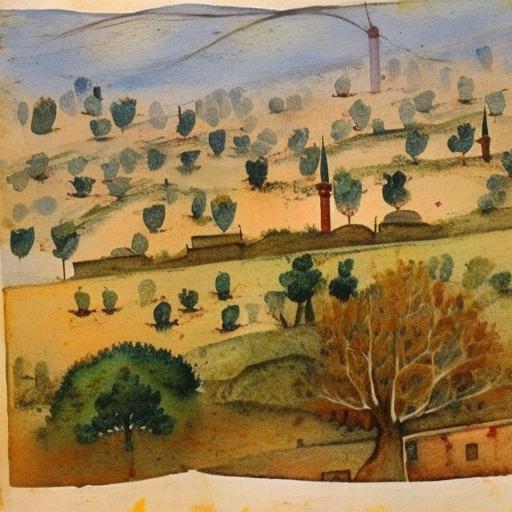Heritage turkey breeds are a group of traditional turkey breeds that have been raised for centuries. These breeds are known for their unique characteristics, rich history, and important role in sustainable agriculture. Unlike commercial turkey breeds, heritage turkey breeds are valued for their ability to thrive in free-range environments, natural mating behaviors, and flavorful meat. These breeds have been carefully preserved by dedicated breeders and conservationists to ensure their survival for future generations. Heritage turkey breeds are an important part of our agricultural heritage and play a crucial role in maintaining genetic diversity within the turkey population.
Key Takeaways
- Heritage turkey breeds are traditional breeds that have been raised for centuries and are known for their unique characteristics and traits.
- These breeds have a rich history and are important for preserving genetic diversity and cultural heritage.
- Some popular heritage turkey breeds include the Bourbon Red, Narragansett, and Standard Bronze.
- Conservation efforts for heritage turkey breeds are crucial for maintaining their population and genetic diversity.
- Raising heritage turkey breeds can provide benefits such as superior flavor, adaptability, and sustainability, making them a valuable choice for farmers and consumers.
Characteristics and Traits of Heritage Turkey Breeds
Heritage turkey breeds are known for their distinct characteristics and traits that set them apart from commercial turkey breeds. These breeds are typically larger and more robust than their commercial counterparts, with mature toms weighing between 25-40 pounds and hens weighing between 12-20 pounds. They have a longer lifespan and slower growth rate, taking about 28 weeks to reach maturity compared to the 16 weeks it takes for commercial breeds. Heritage turkeys also have a more natural conformation, with a broad breast, long legs, and a full, fanned tail. Their plumage comes in a wide variety of colors and patterns, adding to their visual appeal.
In addition to their physical characteristics, heritage turkey breeds also exhibit unique behavioral traits. They are known for their strong instincts for foraging and natural mating behaviors, which make them well-suited for free-range environments. Unlike commercial breeds, heritage turkeys are able to reproduce naturally, which is an important factor in maintaining genetic diversity within the population. Their ability to thrive in outdoor settings and their natural behaviors make them an ideal choice for sustainable and ethical farming practices.
The History and Importance of Heritage Turkey Breeds
The history of heritage turkey breeds dates back to the early days of European colonization in North America. When the Pilgrims arrived in the New World, they encountered wild turkeys that were abundant in the forests. These wild turkeys were eventually domesticated by Native American tribes, and the resulting breeds formed the foundation of the heritage turkey breeds we know today. Over the centuries, these breeds were carefully selected and bred for their desirable traits, leading to the development of distinct varieties such as the Bourbon Red, Narragansett, and Standard Bronze.
Heritage turkey breeds played a crucial role in providing sustenance for early settlers and were an important part of the traditional Thanksgiving feast. However, with the rise of industrial agriculture in the 20th century, many heritage turkey breeds were replaced by faster-growing commercial breeds that were better suited for mass production. As a result, the population of heritage turkey breeds declined significantly, putting them at risk of extinction. Recognizing the importance of preserving these historic breeds, dedicated breeders and conservationists have worked tirelessly to protect and promote heritage turkey breeds, ensuring that they continue to be a part of our agricultural heritage.
Popular Heritage Turkey Breeds
There are several popular heritage turkey breeds that have been carefully preserved and maintained by dedicated breeders and conservationists. One of the most well-known heritage turkey breeds is the Bourbon Red, which is prized for its rich mahogany plumage and flavorful meat. The Narragansett is another popular heritage breed with its distinctive black, gray, and white feathers and excellent foraging abilities. The Standard Bronze is one of the oldest turkey breeds in America, known for its large size and impressive plumage. Other notable heritage turkey breeds include the Black Spanish, White Holland, and Royal Palm, each with its own unique characteristics and historical significance.
These popular heritage turkey breeds have been carefully selected and bred for their desirable traits, making them valuable assets to sustainable agriculture. Their ability to thrive in free-range environments, natural mating behaviors, and flavorful meat make them an ideal choice for small-scale farmers and homesteaders who prioritize quality over quantity. By raising these historic breeds, farmers can contribute to the preservation of genetic diversity within the turkey population and help ensure the survival of these important heritage breeds for future generations.
Conservation Efforts for Heritage Turkey Breeds
Conservation efforts for heritage turkey breeds have been instrumental in protecting these historic breeds from extinction. Organizations such as the Livestock Conservancy and the Heritage Turkey Foundation have played a crucial role in raising awareness about the importance of preserving genetic diversity within the turkey population. Through education, outreach programs, and breeders networks, these organizations have worked to promote the value of heritage turkey breeds and provide resources for breeders and farmers interested in raising these historic birds.
In addition to educational efforts, conservationists have also focused on breeding programs to increase the population of heritage turkey breeds. By carefully selecting breeding stock and implementing genetic management plans, conservationists have been able to improve the health and viability of these historic breeds. Furthermore, efforts to promote consumer demand for heritage turkey products have helped create a market for these unique birds, providing economic incentives for farmers to raise them.
Benefits of Raising Heritage Turkey Breeds

There are numerous benefits to raising heritage turkey breeds, both from an agricultural and cultural perspective. From an agricultural standpoint, heritage turkeys are well-suited for sustainable farming practices due to their ability to thrive in free-range environments and natural mating behaviors. Their slower growth rate and longer lifespan also contribute to their overall health and well-being, resulting in flavorful meat that is prized by chefs and consumers alike.
Culturally, raising heritage turkey breeds helps preserve our agricultural heritage and maintain genetic diversity within the turkey population. By supporting small-scale farmers who raise heritage turkeys, consumers can contribute to the conservation of these historic breeds and help ensure their survival for future generations. Additionally, heritage turkeys provide a unique connection to our culinary traditions, offering a taste of history that cannot be replicated by commercial breeds.
Conclusion and Future of Heritage Turkey Breeds
In conclusion, heritage turkey breeds play a vital role in our agricultural heritage and are an important part of sustainable agriculture. Their unique characteristics, rich history, and cultural significance make them valuable assets that deserve to be preserved for future generations. Through conservation efforts, educational outreach, and consumer support, we can ensure that these historic breeds continue to thrive and contribute to genetic diversity within the turkey population.
The future of heritage turkey breeds depends on our collective efforts to raise awareness about their importance and support the farmers and conservationists who are dedicated to preserving these historic breeds. By choosing to raise or consume heritage turkey products, we can make a meaningful impact on the conservation of these important breeds and help secure their place in our agricultural landscape for years to come. As we look towards the future, it is essential that we continue to prioritize the preservation of genetic diversity within our livestock populations, including heritage turkey breeds, to ensure a sustainable and resilient food system for generations to come.
If you’re interested in learning more about heritage turkey breeds, you might also want to check out this informative article on 10 Essential Tips for Building a Chicken Coop. It provides valuable insights into creating a comfortable and secure environment for your poultry, which is essential for raising heritage turkey breeds as well.
FAQs
What are heritage turkey breeds?
Heritage turkey breeds are traditional breeds of turkeys that have been raised for centuries and are known for their unique characteristics and qualities.
What are some examples of heritage turkey breeds?
Some examples of heritage turkey breeds include the Bourbon Red, Narragansett, Standard Bronze, Black, and Slate.
What sets heritage turkey breeds apart from other turkey breeds?
Heritage turkey breeds are known for their ability to mate naturally, their slow growth rate, and their ability to forage for food. They also have a strong genetic lineage and are recognized for their historical significance.
Why are heritage turkey breeds important?
Heritage turkey breeds are important because they help preserve genetic diversity in the turkey population and contribute to the conservation of traditional farming practices. They also offer a unique flavor and texture compared to commercial turkey breeds.
How can I support heritage turkey breeds?
You can support heritage turkey breeds by purchasing products from farmers who raise and breed heritage turkeys, advocating for their conservation, and educating others about the importance of preserving these traditional breeds.
Meet Walter, the feathered-friend fanatic of Florida! Nestled in the sunshine state, Walter struts through life with his feathered companions, clucking his way to happiness. With a coop that’s fancier than a five-star hotel, he’s the Don Juan of the chicken world. When he’s not teaching his hens to do the cha-cha, you’ll find him in a heated debate with his prized rooster, Sir Clucks-a-Lot. Walter’s poultry passion is no yolk; he’s the sunny-side-up guy you never knew you needed in your flock of friends!







